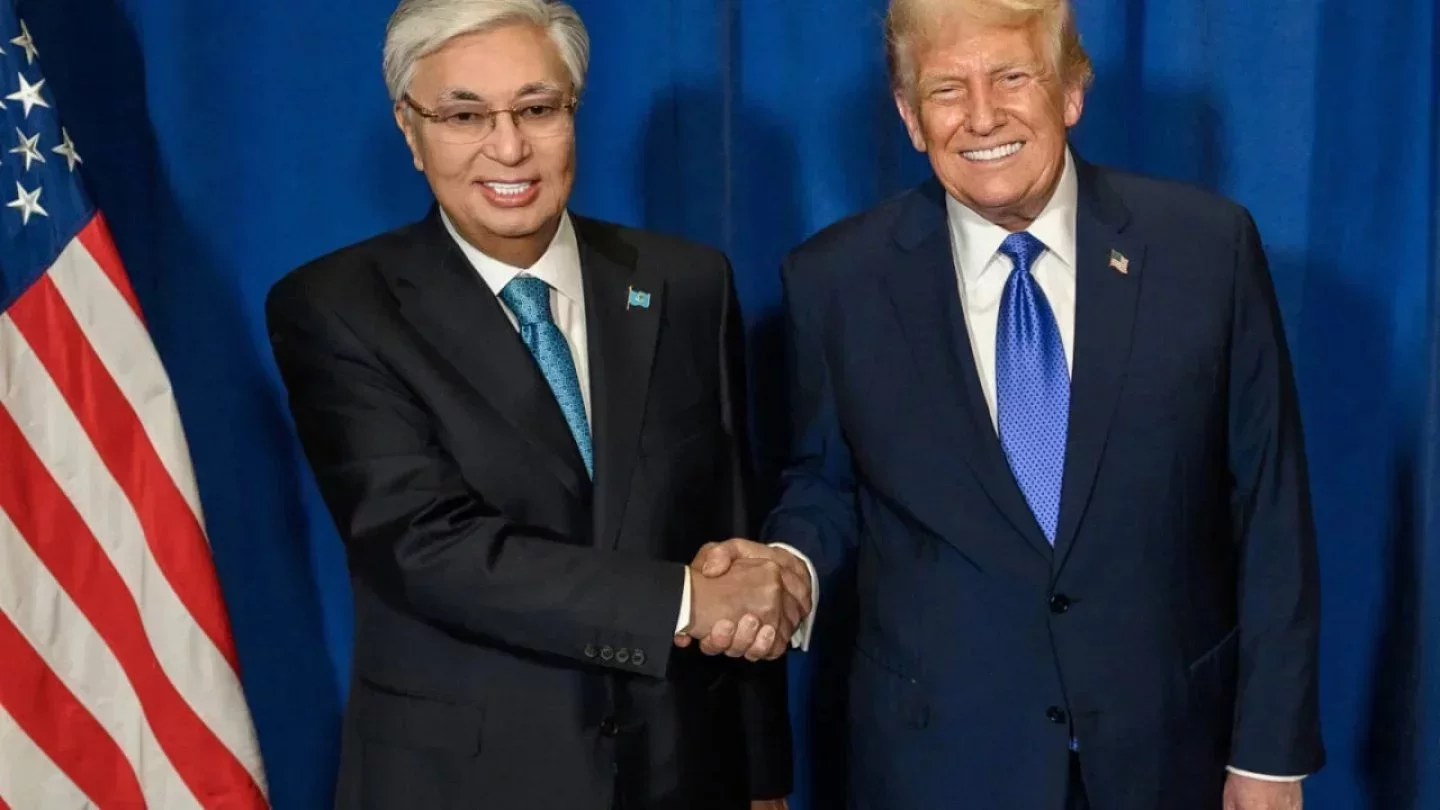Trump to Host C5+1 Summit: Analysts Say Focus Will Be on Resources
 Photo: Aqorda
Photo: Aqorda
Washington is preparing to host the next C5+1 summit at the White House, where Donald Trump will meet with the leaders of Central Asia. Political analysts say the discussions are likely to center not on democratic reforms, but on access to the region’s vast natural resources, Orda.kz reports.
Dana Masalimova, a fellow at Harvard University’s Center for Russian and Eurasian Studies, wrote in The National Interest that the United States sees the summit as a means of expanding its economic influence in Central Asia.
According to her, Trump aims to bring Kazakhstan into the American “critical minerals club” — an international coalition that secures U.S. access to rare and strategically vital resources used in defense, electronics, and electric vehicle production.
Kazakhstan is the world’s largest uranium producer and holds over 2.6 million tons of rare earth element reserves. Of the 50 minerals designated as critical by the U.S. government, half are found in Kazakhstan, and 19 are already being mined.
The administration is reportedly backing US firms in talks to develop one of the world’s largest untapped tungsten deposits in Kazakhstan — a potential pilot for a Western-aligned critical minerals chain. Tungsten, essential for defense manufacturing, is dominated by China, which controls about 80 percent of the global supply. A project, supported by the US International Development Finance Corporation or the Export-Import Bank, would embed American capital and technology in Kazakhstan’s mining sector, directly competing with Chinese bidders,
Masalimova noted.
However, she has pointed out that Kazakhstan is landlocked and relies heavily on Russian and Chinese transit routes. Without Western backing and domestic processing capacity, it risks remaining within Beijing’s logistical orbit.
Masalimova also wrote that Russia and China are working to build an alternative Eurasian economic system encompassing “energy, transportation, and payment mechanisms.”
Anchored around the yuan, this architecture could gradually displace the dollar in regional trade.
To counter this, she argued, the U.S. must create “bridges of influence” — strategic investments that tie Central Asia’s economies more closely to the West.
Just as the Tengiz and Kashagan oil projects once helped secure Kazakhstan’s sovereignty, she said, new ventures in critical minerals could serve as a buffer against geopolitical pressure from Moscow and Beijing.
“Money, Then Talks”
Kazakhstan-based political analyst Dosym Satpayev takes a more pragmatic view.
He believes Trump’s decision to host the summit came only after Kazakhstan and Uzbekistan signed multibillion-dollar deals with American companies.
Kazakhstan bought $4.2 billion worth of American locomotives, and Uzbekistan bought $8.5 billion worth of Boeing aircraft. These ‘gifts’ fit perfectly with Trump’s ‘cash first, chairs later’ philosophy,
Satpayev wrote on Facebook.
Following these deals, senior U.S. envoys Christopher Landau and Sergio Gore visited Astana and Tashkent, identifying them as key regional partners for Washington.
Satpayev added that under Democratic administrations, the C5+1 framework was tied to the war in Ukraine and the fight against gray imports.
Under Trump, however, the focus has shifted toward competition with China.
Under Trump, our region is already seen as part of the game being played between the U.S. and China. And this creates certain risks for Central Asian countries. This is primarily due to the unstable relations between the U.S. and China, which resemble a rollercoaster of trade wars and the struggle for global leadership,
he explained.
He noted that the U.S. views the region primarily as a source of rare earth metals, while Russia and China see it as an arena for energy and infrastructure cooperation — and the Central Asian states themselves as bargaining chips to strengthen their own leverage.
In a context of geopolitical chaos, a crisis of old political values, new trade wars, the emergence of new alliances, and rising military tensions, the security and prospects of Central Asia now depend not on international law, which is disappearing, but on a fragile geopolitical balance that could collapse at any moment,
Satpayev concluded.
Ahead of the summit, U.S. Secretary of State Marco Rubio recently announced plans to visit Central Asia, including Kazakhstan, as part of a regional tour.
Original Author: Zarina Fayzulina
Latest news
- Kadyrov Confirms Drone Damage to Grozny City
- Russia Temporarily Blocks Kazakhstan's Grain Transit, Threatening Flax Exports to Europe
- Assets of Businessman Dulat Kozhamzharov Seized Following Halyk Bank Claim
- Georgian Opposition Calls December 6 March Over Alleged Use of Chemicals at 2024 Protests
- Severe Smog Covers Oskemen
- Fire and Structural Damage Reported at Grozny City Tower Amid Drone Threat
- Pashinyan Says Foreign Influence Networks Exposed
- Kazakhstan-Based Lukoil Assets Could End Up in Hungarian Hands
- Strong Tenge Pushes Some Banks to Temporarily Stop Issuing Dollars
- Investigation Links Baimsky Project to Nazarbayev's "Wallet," Vladimir Kim
- Three Kazakhstani Nationals Arrested in Georgia Over Alleged 10,000-Ton Oil Theft
- Turkistan Region Contract for 100 Million Tenge Video Project Triggers Scrutiny
- Gennady Golovkin Becomes First Kazakhstani Honored by the International Boxing Hall of Fame
- Former Majilis Deputy Says She Was Stripped of Mandate After Criticizing Authorities
- Mangystau Authorities Investigate Death of Worker Who Fell Into Elevator Shaft
- Golovkin at World Boxing: How Kazakhstan and Saudi Arabia Are Building a New Power Structure in Boxing
- Taraz: Sentences Extended for Defendants in Group Sexual Assault Case
- Taliban Carry Out Public Qisas Execution After Teenager’s Family Killing
- CITIC Construction Responds to Activist’s Claims Over Almaty–Oskemen Highway Quality
- Kazakhstan Proposes New Law Tightening Control over Anonymous Channels

